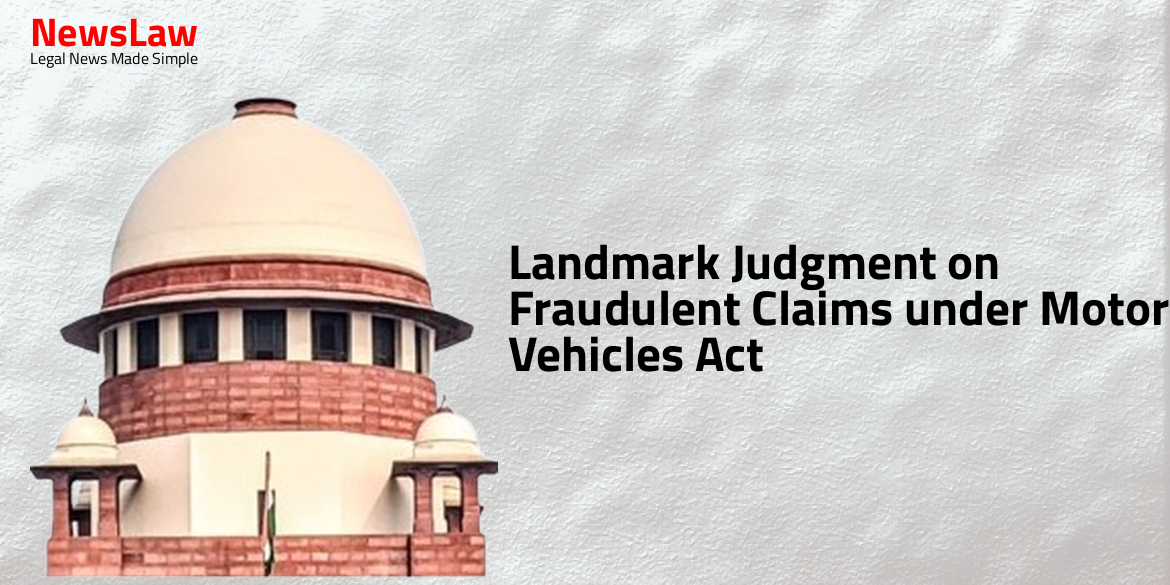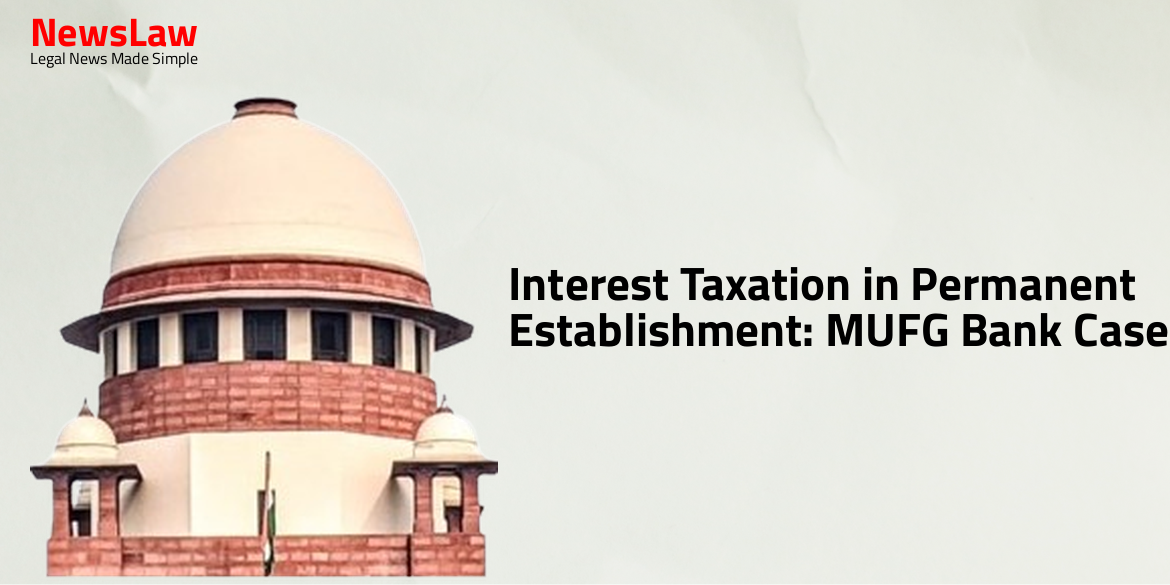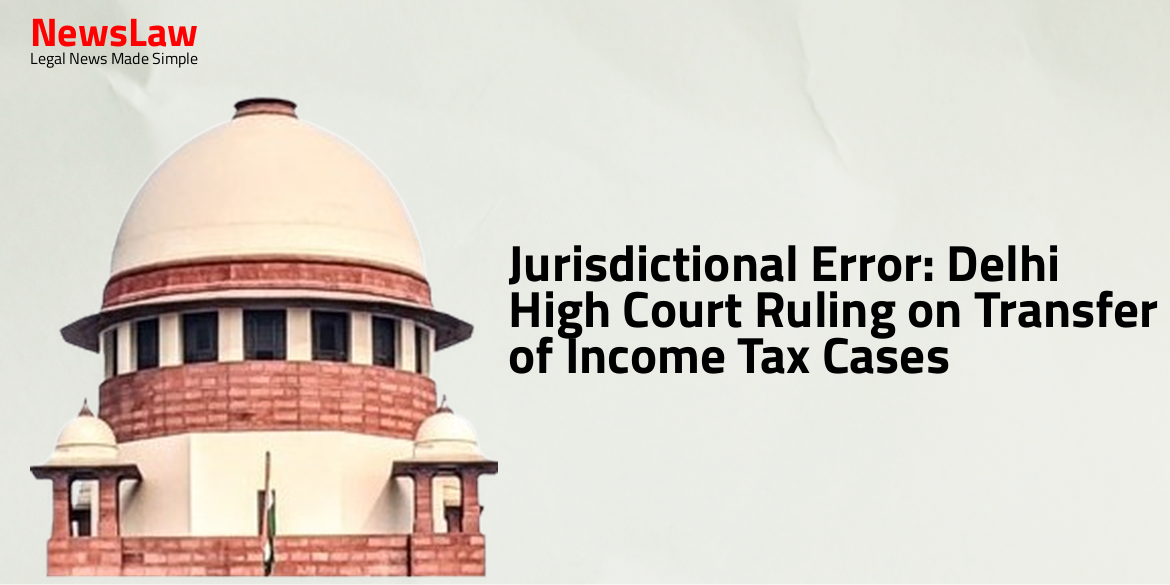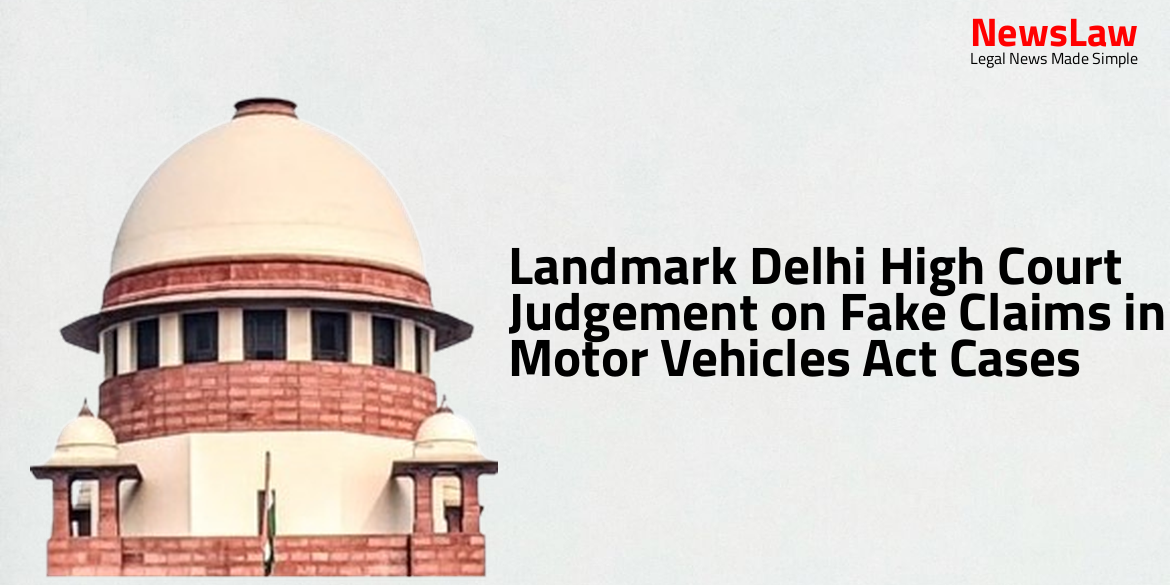In a significant ruling, the Delhi High Court addresses the issue of fraudulent claims under the Motor Vehicles Act. The case sets a precedent for combatting malpractices and ensuring justice in compensation disputes. This judgment sheds light on the importance of upholding the law and protecting the rights of all parties involved. Stay tuned for more insights on this landmark decision.
Facts
- The incident occurred on 13.07.2019 involving a bus with registration number UP-17AT-4406.
- The driver, Paramjit Singh, was driving rashly and caused the bus to overturn after attempting to overtake another vehicle.
- An FIR was registered under Sections 279/304-A/337/338 IPC at PS Thanesar Sadar, Kurukshetra.
- The claim petition was filed on 22.04.2022, almost three years after the accident.
- One passenger, Smt. Geeta Devi, died due to burns when the bus caught fire after the accident.
- The driver is from VPO Jhanjoti, Tehsil Ajnala, Amritsar, the owner of the bus is from Village Gurha Singh Chak Shaman, Jammu, and the insurance company’s office is in Jammu.
- The court expressed concerns about fabricated claims under the Motor Vehicles Act and directed investigations into doubtful cases to prevent such fraud.
- Similar fraudulent practices by advocates were noted in various districts, leading to legal action against several individuals.
Arguments
- Modus operandi of advocates for filing fake cases under Motor Vehicles Act and Workmen Compensation Act discussed at length.
- Various methods used for filing fake compensation petitions highlighted, including non-road accident injury-death converted into road accident claims, fraudulent implantation of vehicle, false implantation of driver, claimant implantation, multiple claims at various locations for compensation from the same accident.
- Claim applications filed before multiple MACT Tribunals and authorities under the Employees Compensation Act, 1923.
- Instances of fake/fabricated insurance policies and income/medical documents for exaggerated compensation brought to notice.
Analysis
- The court expresses concerns over the suspicious aspects of the claim petition filed almost three years after the accident and the lack of key documents on record.
- The court refers to the directions issued by a learned Single Judge of the Delhi High Court to expedite motor vehicle claims adjudication.
- After considering various suggestions, the court proposes a set of directions for police authorities, Claims Tribunals, and insurance companies.
- The court highlights the importance of following the provisions of the Motor Vehicles Act and emphasizes the need for urgent action by police authorities and Tribunals.
- Specific instances of connivance and fake claims are mentioned, prompting the need for thorough investigation and prevention of fraudulent cases.
- The court stresses the importance of determining just compensation and expeditious disposal of applications.
- Key issues highlighted include delayed filing of claim petition, absence of necessary documents, and lack of compliance with key provisions of the Act.
- The court notes discrepancies in the information provided and the need for certified copies of essential documents like charge-sheets and MLC/Postmortem reports.
- The court underlines the obligation of the Claims Tribunal to uncover the truth behind claims and ensure the genuineness of cases.
- Various instances of fraudulent practices, including filing claims in multiple courts and using fake documents, are pointed out.
- The court directs police stations to submit Accident Information Reports promptly and emphasizes the importance of verifying the accuracy of accident details.
- Efforts to streamline compensation distribution and handle cases efficiently through summary enquiries or referrals to Lok Adalat are outlined.
- The Police and Motor Accidents Claims Tribunals have failed to implement mandatory provisions of the Motor Vehicles Act.
- Rule 150 of Central Motor Vehicle Rules, 1989 specifies the Police Report form (No.54) to be submitted under section 158(6) of the Act.
- The court emphasized the importance of complying with Section 158(6) and Rule 150, directing all State Governments and Union Territories to ensure police officers follow the requirements.
- Periodical checks by Inspector Generals of Police should confirm compliance.
- Failure to report accidents to the Claims Tribunal and Insurance Company promptly as per Section 158(6) hampers compensation for victims.
- Measures to protect compensation from exploitation have been repeatedly stressed by the court.
- The court appointed Shri Gopal Subramaniam as Amicus Curiae to seek solutions to these issues.
- Full implementation of the Act’s provisions is crucial for victims to receive timely compensation.
- Concern over the proper disbursement of compensation to uneducated and vulnerable victims is highlighted.
- Non-compliance with the Act’s provisions should result in action against responsible officials.
- Amendments in the Act aim to expedite claim processing and require registration of a claim within one month.
- Police must forward accident reports to the Claims Tribunal and insurers promptly for swift compensation determination.
- The court has taken serious note of malpractices, fraud, and siphoning of insurance amounts in claim petitions.
- Police to notify the first date of hearing to victim or victim’s family, driver, owner, and insurer
- The notification is required for cases involving injuries or deaths in accidents
- Ensures that all relevant parties are informed about the proceedings
- Helps in ensuring that the victims or their families are kept updated on the legal process
- All claimants submitted on affidavit that they have not filed any petition elsewhere.
- Claimants are permanent residents of Delhi, establishing jurisdiction in the learned Tribunal.
- Non-compliance of Section 158(6) of MV Act by Investigating Officer does not prejudice the claimants’ right to pursue their claim petitions.
Decision
- The parties are directed to appear before the Tribunal on 03.06.2024 for further hearing.
- The 11 revision petitions are to be considered in the upcoming proceedings.
- All necessary compliance with the Tribunal’s orders is mandated.
- The decision made in 2022 is overturned and set aside.
- No opinion on the merits of the case is expressed in this ruling.
- Applicants/petitioners must submit all relevant documents by the next hearing date.
- The matter is sent back to the Tribunal for a new hearing and trial in accordance with the law.
Case Title: ANMOL GUPTA Vs. PARAMJIT SINGH & ORS. (2024:DHC:3951)
Case Number: C.R.P.-161/2022



